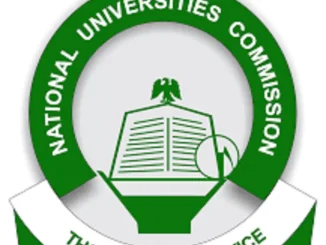
NUC Suspends Multiple Accreditation of University Programmes by Professional Bodies
The National Universities Commission (NUC) has issued a directive putting an end to the widespread practice of multiple accreditations of academic programmes in Nigerian universities by independent professional bodies. This follows a formal instruction from the Federal Ministry of Education, citing the duplication of accreditation efforts and rising administrative burdens on universities.
In a circular dated 20 May 2025 and signed by Jubril Abu Momoh, Acting Director from the Executive Secretary’s Office, the NUC conveyed the directive to all Vice-Chancellors of Nigerian universities, emphasizing that professional bodies will no longer conduct independent accreditations outside the NUC’s oversight.
The Issue of Multiple Accreditations
Over the years, Nigerian universities have had to juggle between the NUC’s core accreditation processes and parallel reviews by various professional bodies. While these professional assessments were often aimed at ensuring industry relevance and standardization, they increasingly became a source of operational conflict, financial strain, and regulatory redundancy.
According to the NUC, this new policy aims to streamline quality assurance mechanisms, reduce institutional fatigue, and enhance synergy between regulatory agencies in the higher education ecosystem.
“The Honourable Minister of Education has approved that henceforth, all professional bodies shall no longer be allowed to conduct independent accreditation of academic programmes in Nigerian universities,” the circular stated.
Regulatory Bodies Exempted from the Directive
The NUC clarified that the suspension does not apply to certain statutory regulatory bodies, which have been granted a waiver due to the critical nature of their roles in professional education and licensure. These bodies are permitted to continue their regulatory functions in collaboration with the NUC, rather than independently.
The seven exempted bodies include:
-
Medical and Dental Council of Nigeria (MDCN)
-
Nursing and Midwifery Council of Nigeria
-
Council of Legal Education (CLE)
-
Pharmacy Council of Nigeria (PCN)
-
Veterinary Council of Nigeria
-
Council for the Regulation of Engineering in Nigeria (COREN)
-
Architects Registration Council of Nigeria
This list reflects professions where licensure is tightly bound to both academic and post-academic qualifications, and where alignment with national academic standards is essential.
What This Means for Universities
This policy marks a significant shift in the governance of higher education in Nigeria. University administrators are now required to coordinate all accreditation-related activities through the NUC, except for engagements with the seven approved regulatory bodies.
The move is expected to reduce the regulatory burden on institutions and prevent overlaps that may compromise academic calendars, resource planning, and personnel productivity.
However, it also signals a call for stronger internal quality assurance units within universities and increased collaboration between universities and regulatory bodies under the watch of the NUC.
Looking Ahead
This decision arrives at a time when education reform in Nigeria is under intense scrutiny. With increasing demands for transparency, accountability, and efficiency in university governance, the Ministry and the NUC appear committed to harmonizing quality assurance efforts across the board.
Observers say that the next steps should include a digital integration of accreditation processes, clear timelines, and a monitoring framework that guarantees the quality of academic offerings while respecting the autonomy of institutions.
As the NUC rolls out implementation, Vice-Chancellors and academic leaders are urged to align with this new directive and ensure smooth transitions in their accreditation schedules.
For further information or clarification, universities are encouraged to contact the NUC directly through official channels.





Be the first to comment